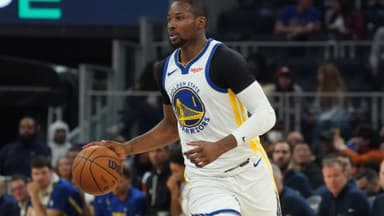The 6’9″ kid from Maine is set to be the main man tonight at the Barclays Center in New York. The hype surrounding Cooper Flagg is real—and justified—as many widely project the former Duke standout to be the No. 1 overall pick in the 2025 NBA Draft. A versatile playmaker with a rare blend of size, skill, and competitiveness, Flagg is on the cusp of making history. If selected first, he would become the second-youngest player ever to go No. 1, behind only LeBron James in 2003.
Advertisement
Many expect the Dallas Mavericks to make that pick, which would make Flagg the third No. 1 overall selection on their roster, joining Kyrie Irving and Anthony Davis.
Being the top pick in the draft typically means people view you as the best of your class. In Flagg’s case, there’s near-universal agreement that he’s a “can’t-miss” prospect—someone who can do it all, both with and without the ball.
But that raises an interesting question: why isn’t anyone talking about his weaknesses? Why haven’t analysts and draft experts pointed out areas where his game needs growth?
Dan Patrick recently pointed out that if analysts viewed Flagg as a college quarterback projected to go No. 1 overall, they would dissect every flaw in his game endlessly. Experts would be quick to highlight what he couldn’t do rather than what he could. Yet with Flagg, it’s been all praise, little critique.
Is it possible that at just 18 years old, Cooper Flagg is truly a perfect prospect?
Well, according to NBA Draft expert Jay Bilas, Flagg just might be that rare prospect. That’s not to say he doesn’t need improvement or that he’s the most talented player ever projected to go No. 1 overall.
“You compare him to other players at 18, I think there have been perhaps more talented players in the past in certain areas, like Kevin Durant was a way more talented scorer. Flagg’s not the guy; you’re going to say he’s going to lead the league in scoring, but he does everything well. There are certain areas where he can improve. But across the board, it’s rare to find a player that checks so many boxes. He’s really a complete player at 18 and a half.”
Flagg still needs to sharpen his ball handling and improve his scoring efficiency, but he brings a well-rounded game and many expect him to make an impact on both ends of the floor, offensively and defensively.
Many NFL quarterbacks have gone No. 1 overall over the past twenty-five years. Most entered the league as exciting, can’t-miss prospects—the best of their draft class. But not all of them lived up to the hype or fulfilled their potential.
Eli Manning certainly did. He delivered on expectations, leading the Giants to two Super Bowl victories—both against Tom Brady and the New England Patriots at the height of their dynasty. That alone cements his legacy.
Matthew Stafford is another success story. Known for having one of the strongest arms in the league, Stafford climbed the NFL’s all-time charts in passing yards and touchdowns, much of it while playing for a struggling Detroit Lions franchise. Even after Calvin Johnson’s retirement, Stafford remained productive. His eventual move to the Rams and subsequent Super Bowl win in Los Angeles validated his status as a franchise quarterback who lived up to the promise.
View this post on Instagram
Joe Burrow, the Heisman winner and national champion, came out of college as one of the most decorated prospects ever. Taken No. 1 overall, he has largely lived up to the lofty expectations despite enduring multiple injuries. With a Super Bowl appearance, multiple AFC Championship runs, two Pro Bowl nods, and two Comeback Player of the Year honors in just five seasons, Burrow has already carved out an impressive résumé. His last full season was arguably MVP-worthy—if only the Bengals had made the playoffs.
But for every Manning, Stafford, or Burrow, there are cautionary tales—Sam Bradford, JaMarcus Russell, David Carr. Even Jameis Winston and, so far, Trevor Lawrence have fallen short of the sky-high expectations that came with being the top pick. It’s a reminder that going No. 1 overall doesn’t guarantee success—or that one player can single-handedly turn around a franchise, especially in the NFL.
In the NBA, however, the equation is different. A single superstar can dramatically shift a team’s fortunes. Cooper Flagg has the potential to do just that. If the Mavericks take him as expected, he could help return them to contender status within a season or two, especially alongside seasoned stars like Kyrie Irving and Anthony Davis.
Still, Flagg faces enormous pressure. He’ll be stepping into Luka Dončić-sized shoes, and with the added weight of being the No. 1 overall pick, expectations will be sky-high. Whether he thrives under that pressure—or gets weighed down by it—remains to be seen.








